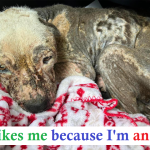Little pet requires affection, tenderness, empathy, and consideration. God thanks, physicians, for saving lives and offering affection, cuddles, and care to that lovely, lovely, beautiful, great pet.
Thanks very a lot for saving, aiding, and taking such excellent care of this candy, lovely, and beautiful pet, in addition to for offering for his medical care.
Ship your beautiful pet loads of love, kisses, and therapeutic prayers for a speedy restoration.
all the nice fortune and affection he deserves, together with many joyful years spent in a loving perpetually residence. God’s blessings on you, this lovely pet, and all creatures
here are 20 tips for raising a dog:
- Be Consistent with Rules: Consistency in enforcing rules helps your dog understand what behavior is acceptable.
- Use a Crate Wisely: Crate training can aid in housetraining and provide a safe space for your dog when you’re not home, but don’t use it as punishment.
- Be Aware of Body Language: Learn to read your dog’s body language to understand their feelings and avoid stressful situations.
- Practice Patience: Dogs learn at their own pace, so be patient and understanding during training and behavior modification.
- Teach Bite Inhibition: Teach your dog to control the force of their bite during play to prevent accidental injuries.
- Supervise Interactions: Always supervise interactions between your dog and children or other pets to prevent accidents or conflicts.
- Prevent Resource Guarding: Teach your dog to share resources like food, toys, and space to prevent possessive behavior.
- Be Mindful of Temperature: Avoid leaving your dog outdoors in extreme heat or cold, and be cautious of hot pavement during walks.
- Provide Mental Challenges: Engage your dog’s brain with activities like obedience training, agility courses, or scent work.
- Practice Recall: Teach your dog a reliable recall command so you can call them back to you in any situation.
- Consider Spaying or Neutering: Discuss the benefits of spaying or neutering your dog with your vet to prevent unwanted litters and certain health issues.
- Manage Stress: Minimize stressors in your dog’s environment and provide comfort during times of anxiety, such as thunderstorms or fireworks.
- Be a Good Neighbor: Respect your neighbors by keeping your dog from excessive barking and cleaning up after them in public spaces.
- Prevent Separation Anxiety: Gradually accustom your dog to being alone for short periods to prevent separation anxiety.
- Train for Handling: Get your dog used to being handled for grooming, vet visits, and other necessary care from an early age.
- Be Prepared for Emergencies: Have a plan in place for emergencies, including natural disasters or sudden health issues.
- Monitor Their Weight: Keep an eye on your dog’s weight and adjust their diet and exercise as needed to maintain a healthy body condition.
- Continue Learning: Stay informed about new training techniques, health developments, and advancements in dog care to provide the best for your pet.
- Be Firm but Kind: Set boundaries and correct unwanted behavior with firmness, but always show kindness and love to your dog.
- Enjoy Your Time Together: Finally, cherish the moments you share with your dog and create lasting memories through adventures, cuddles, and playtime.







